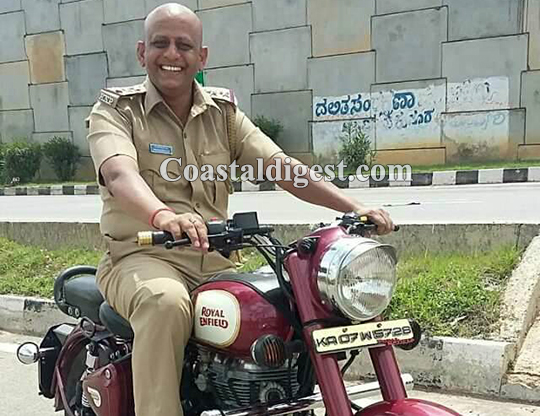Kolar, Oct 18: In the third such case in recent months in Karnataka, a police official allegedly shot himself dead with his service revolver at Malur Police Station in Kolar district in the early hours today.

38-year-old Raghavendra Muniyappa, a circle inspector, returned to the police station after a night patrol and shot himself fatally around 2 AM, police said.
The reason for the extreme step by the police official was not known immediately, they said.
Kolar district Superintendent of Police Divya Gopinath said the reason for the alleged suicide was not known and police were investigating the case.
The latest alleged suicide by a police official comes months after two similar incidents which had triggered a controversy.
DySP in Mangaluru M K Ganapathy had allegedly committed suicide in July, which had stirred a huge political storm, as he had blamed Minister K J George and two top IPS officials for his extreme step.
George had resigned as minister amid the controversy but was recently reinducted after the Karnataka CID gave a clean chit to him and the two senior police officers in its 'B' report filed in a court in Madikeri court.
Ganapathy was found hanging from a ceiling fan in a room at a lodge in Madikeri, prior to which told a local TV channel that George and IPS officers AM Prasad and Pranab Mohanty would be responsible "if anything happens to me."
On July 5, the body of deputy SP of Chikkamagaluru sub-division Kallappa Handibag (35), accused of kidnapping a person for ransom, was found hanging in his father-in-law's home at Murgod in Belagavi district.







Comments
Easy way to escape from all karmas done previously!
committing suicide is not a solution for any problems....he should have faced it instead...it looks like he was not daring....not fit for police job...
RIP. If those supposed to protect others kill themselves, then what about common people?
What's going on in our state. Farmers suicide not stopped. Now police also started commiting suicide. who will find solution?
Ganapathi suicide and this shows the clear view of corrupt politics of congress.
now bjp goondas will start blaming congress!
seriously this is going ugly and must be stopped. we are loosing good officers like ganapathi. politicians like K G George must be sent out of the country.
In congress ruled Karnataka there is no place for sincere police officers. One killer minister was recently re inducted into cabinet.
Add new comment